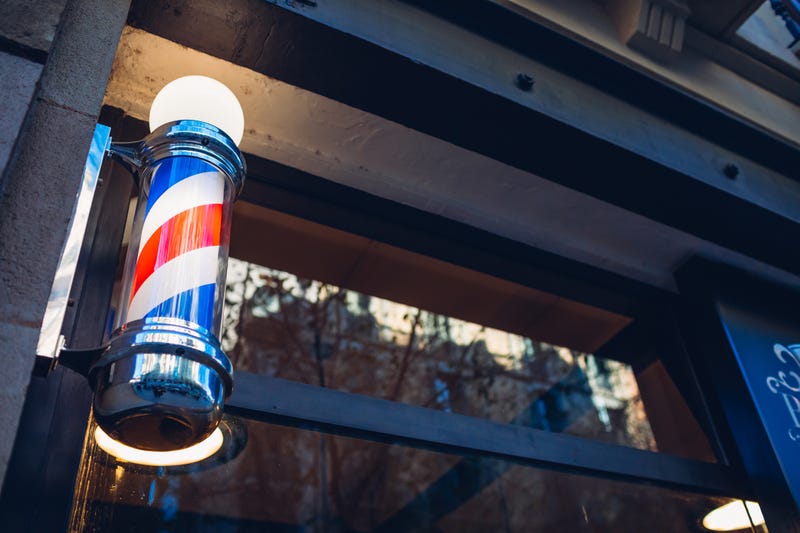
A Black-owned salon and barbershop that opened in Portland, Oregon in 1956 and has stood the test of time through urban renewal, freeway construction and gentrification, not to mention the economic hardships of the COVID-19 pandemic, has been added to the U.S. National Register of Historical Places.
Dean's Beauty Salon and Barber Shop is the longest continually operated Black-owned business not only in Portland, but in the entire state of Oregon.
Three generations of the Dean family have owned this community landmark in the city's historic Lower Albina neighborhood.
The shop significantly illustrates the important role of barbering and beauty culture in African American life, both as a means to build wealth through entrepreneurship and as an important expression of pride and solidarity with other members of the Black community, according to its nomination application.
"Dean's Beauty Salon and Barber Shop's prominence within the local African American community, as demonstrated by its more than six decades of continuous operation, illustrates its importance as a gathering space and a kind of sanctuary for its clients. This role has become even more important over time, as urban renewal programs in the 1960s and 1970s, disinvestment in the 1980s and 1990s, and gentrification in the early twenty-first century have decimated Lower Albina's Black business community and displaced a large percentage of its African American residents," the application states.
Sites on the National Register of Historic Places represent stories of local and national significance. The recognition qualifies sites for certain grants, limits building alterations and prohibits demolition. Sites on the register are also eligible for state and federal tax breaks and preservation support.
The effort to get the shop recognized was spearheaded by Kimberly Moreland, a salon customer and president of Oregon Black Pioneers.
"The building had to be researched, the historical significance shown and the narrative about why it matters. It took nine months to get it done," Moreland told The Oregonian, adding that the effort was completely worth it.
"Black history is being erased. Having a physical landmark in the community is important," she said. "It will forever be a physical reminder of the community that, in many ways, has been destroyed."
In late June, the shop held a party for the neighborhood to celebrate its new distinction.
"It was like an old-fashioned block party we had when I was growing up," owner Kim Brown, granddaughter of founders Benjamin and Mary "Rose" Dean, told The Portland Observer. "We played games, had speakers, had dancers and there was dancing in the streets."
Brown, who has two sons in their 30s, said the business will stay in the family for years to come.
"My sons know that the business will go on, even if they just run it and have operators working in here," she told The Observer. "Because now it's a national landmark, and they know it has to go on for the next 68 years. They know this is what their great-grandparents would want."


